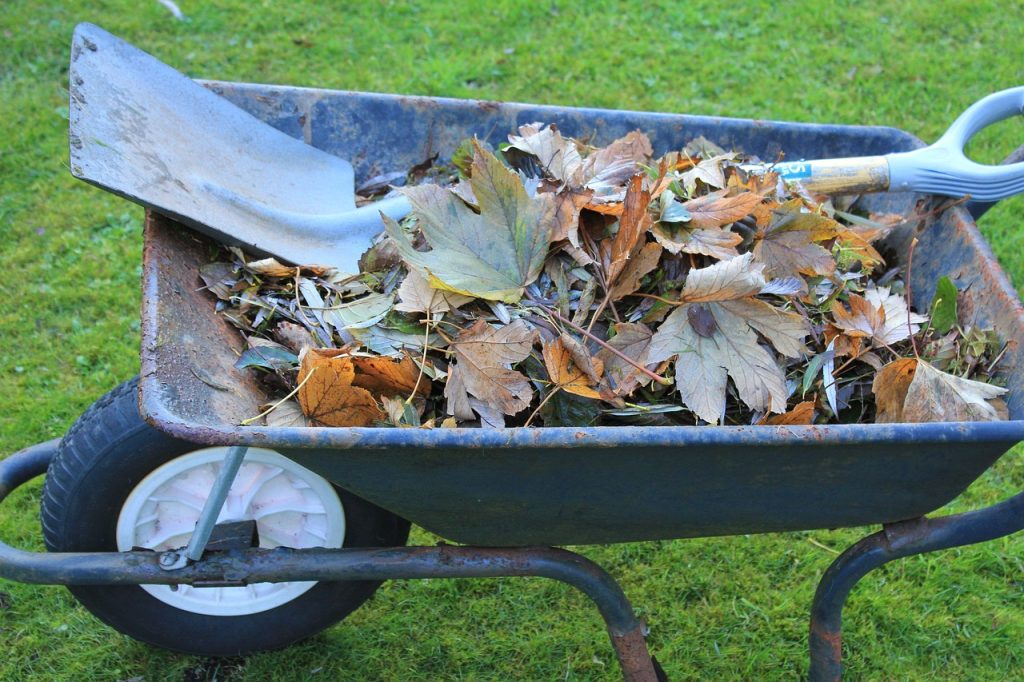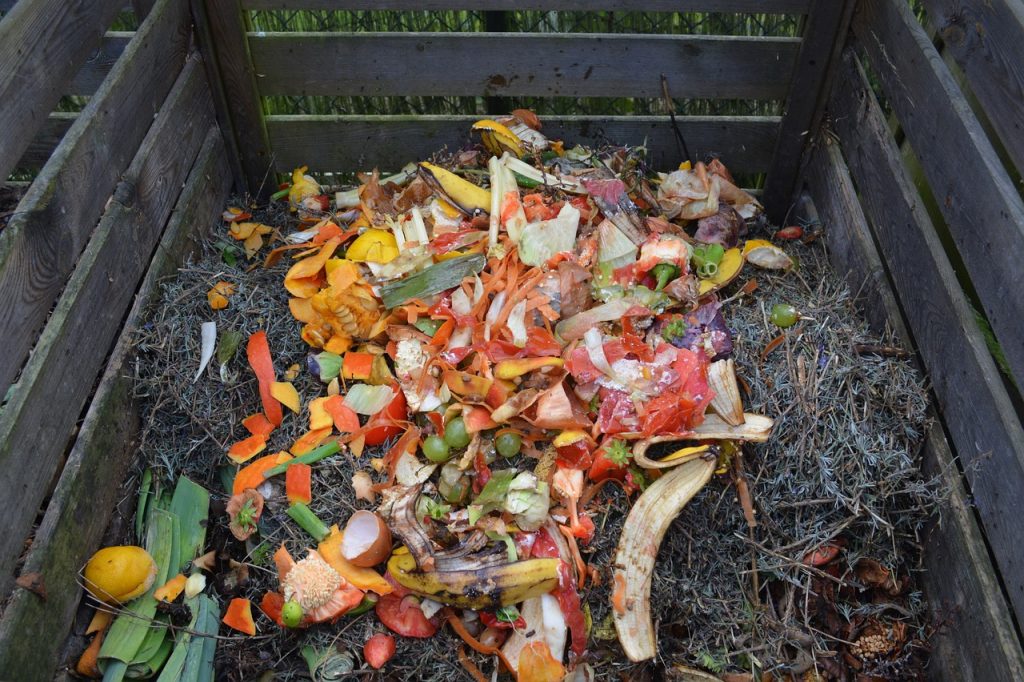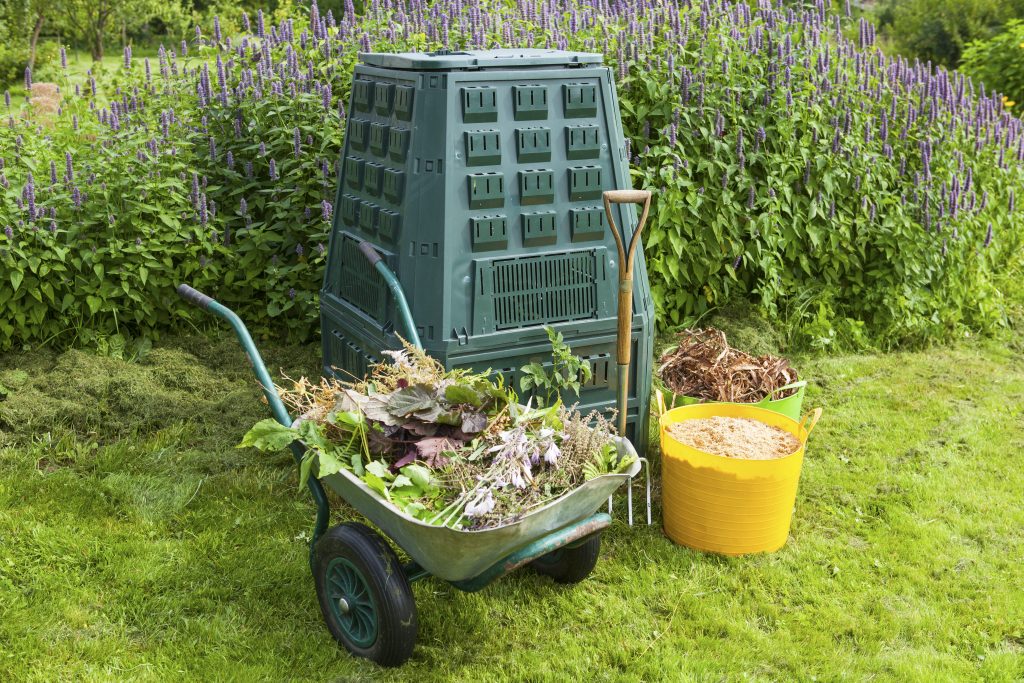Compost is such a great thing that you can do at home which is beneficial for the environment and your garden. You may have heard the general rule that basically anything that once lived, that is any organic matter, can be thrown into your compost bin. However, there is some debate and caution when considering some things.
Not sure if you can compost something or not? Then read on to find a comprehensive list of everyday items that you may have questioned whether or not you could compost them.

Contents
Fruits And Vegetables Including Onion And Citrus
All fruits and vegetable scraps whether cooked, canned or raw can go onto your compost pile. Check for any produce stickers before adding to your compost as these are made from plastic and cannot be composted.
Mouldy Fruits And Vegetables
There are no issues with adding already mouldy food to your compost pile. Generally the mould found on fruits and vegetables is harmless. Everything in the compost bin is decomposing and mouldy food simply means it has already started this process.
Onion And Citrus
There is a lot of debate about whether onion and citrus fruit should be added to your compost bin. However, a few citrus and onions here and there isn’t going to disrupt your compost. If you are consistently juicing a lot of citrus then it’s best not to put them in as they can throw off the pH balance of your compost product. An alternative, if you have the space, is to dig a hole and put the citrus peel in the hole. If you don’t have another option, you can still add the citrus peel to the pile, just make sure you add lots of brown carbon, about double the amount of citrus, to balance it out.
Coffee Ground And Tea Leaves
It’s totally fine to add your coffee grounds and tea leaves to your compost pile. Take note that some tea bags are made of plastic and therefore cannot be composted.
Eggshells
Eggshells can certainly be composted and are great for adding calcium to your compost. It is recommended to wash eggshells before adding them to your compost bin so as to avoid attracting pests. In addition, crushed eggshells will break down more quickly that if left whole.
Meat And Dairy (Including Bones)
Technically you can compost meat and dairy but most people prefer not to as it can get smelly and there is a higher chance of attracting pests such as rats. It is recommended to use the hot compost method when composting meat and dairy, to kill the pathogens. That being said, there is still some risks of pathogens being present in your compost that may cause illness and contaminate food you are growing in compost made with meat and dairy. An alternative to adding meat and dairy to your compost pile, is to use a Bokashi Bin.
Wheat And Grain Foods
Similar to meat and dairy, products such as pasta and bread are good to add to your compost bin but pests seem to be attracted to these, especially if you don’t have a secured compost bin. Consider using a Bokashi Bin for your wheat and grain products.
Grass Clippings
You can certainly add grass clippings to your compost bin but you may not want to. Grass clippings left on the lawn after being cut are actually beneficial for the lawn as they add back key nutrients to the soil. If you do decide to add them to your compost pile, make sure you mix the grass clippings into the compost to avoid a wet clump of grass which prevents aeration. Also make sure you keep an eye on your green to brown ratios. Grass clippings are green and adding a lot can tip the balance off kilter. Lastly, I recommend using the hot compost method to kill off any grass seeds and help prevent them growing in your vegetable garden bed.
Noxious Weeds
While it’s possible to compost weeds, it’s recommended not to add invasive weeds to your compost bin. It won’t do anything to your compost bin, but you may find that you end up with a vegetable garden bed full of weeds that are then really difficult to get rid of. If you want to give it a go anyway, make sure you use the hot compost method to sterilize the seeds so they don’t become and issue in your garden bed.

Leaves
You can most definitely compost leaves, in fact dry leaves are arguably the best ingredient for adding brown/carbon to your compost pile. Plus a great way to get rid of all the leaves that have fallen around your yard. For best results, crush up the dry leaves as small as possible to ensure they break down faster.
What About Eucalyptus Leaves?
If you live somewhere like Australia you may have an abundance of gum leaves and be tempted to use these in your compost. Eucalyptus leaves have allelopathic toxins so if using eucalyptus leaves, its best if used in moderation. Another tip is to use the hot compost method as this helps to get rid of the toxins in the eucalyptus leaves.
Manure
Manure From Vegetarian Animals
such as horses, cows, chickens, etc is beneficial because it has a lot of nutrients (like nitrogen) that plants require. Composting manure allows it to break down enough so it doesn’t burn your garden plants.
Manure From Meat Eating Animals And Humans
Manure from humans and animals that eat meat such as dogs, cats etc can carry parasites so your compost pile so it is not advised to put these into your compost bin. There is a risk of pathogens or bacteria being present in the final compost product therefore it is not recommended to put this compost on your vegetable gardens. If you were game to give it a go, you would need to get the compost very hot in order to kill the pathogens and bacteria otherwise there is a risk of spreading harmful microbes. Keep in mind though, if your compost gets very hot its likely to kill off the good microbes too, which are very beneficial for your garden plants. Overall, it’s advised not to put manure from meat eating animals into your compost bin. Instead you could consider a specific pet composting system.
Hair
Hair is an organic material and therefore can be added to your compost bin. Both human hair and animal hair can be composted. Therefore, you can easily compost your pet dog’s (or cat) hair after giving it a clipping. It’s best to sprinkle the hair around rather than putting big balls of hair into the compost bin, this will help it break down a lot faster.
Clothes
Surprisingly you can compost clothes, so long as the clothing is made from natural fibres such as hemp, cotton, wool, bamboo etc. Make sure to remove buttons, zips before putting the clothing into the compost bin. Also, it makes sense to cut up the fabric into smaller pieces to help it compost faster.
What Items You Cannot Compost
Here is a list of all the items that you really should not add to your compost bin as they simply do not break down.
- Metal
- Glass
- Cosmetics
- Glue
- Body lotion, shampoo etc
- Oil, gasoline, lubricants, petrol
- Paint
- Chewing gum that is made with plastic
- Hygiene products (unless stated on packaging)
- Plants or wood treated with pesticides
- Charcoal ash
- Styrofoam
- Anything made from plastic
Summary
It may seem a bit daunting at first working out which items to add to your compost pile and which to leave out. At the end of the day, there is a huge amount of common house hold items you can add to your compost pile, and I’m sure there are more things I’ve missed. As long as you stick with adding any materials that were once living and avoiding the manure, then you will be right.
